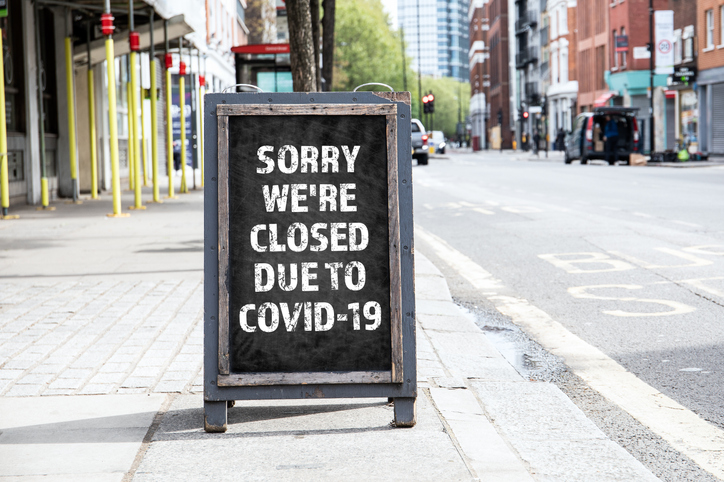On March 30, 2020 Washington state officials suspended the CON for long term care facilities. This is only one of many individual CON laws that remain in Washington state. Without any CON requirements, the state also set up non-hospital facilities, such as Century Link Field Event Center, to handle any overflow from traditional hospitals during the COVID-19 pandemic. (here)
When a perceived need exists, elected officials are willing to exempt CON laws. This session, the Washington State Legislature has unanimously passed SB 5236 which extends the expiration date of certain CON exemptions for the construction of new psychiatric beds in the state. (here)
With 50 years of real-world experience, the evidence is now clear that neither federal nor state-level CON laws reduce health care costs. They do, however, reduce patient access to care.
New York state passed the first CON law in 1966. Businesses, insurers, consumers and providers came together to study the need for additional hospital beds. The group determined there was a surplus of beds and recommended state officials restrict further hospital expansion with special legislation. The law made it illegal to add beds to an existing hospital or to treat patients in a new facility without first gaining permission from state officials. (here)
The federal government became involved in 1972 when Congress amended the Social Security Act to require all states to review new health care construction projects that exceeded $100,000 in value. Failure to comply with this rule would result in the federal government withholding Medicare and Medicaid money from the offending state.
In 1974, because of exploding costs in health care, Congress passed the National Health Planning and Resource Development Act (NHPRDA). This law established a comprehensive federal health care CON regulation, with the penalty for a state’s non-compliance being forfeiture of federal Medicare and Medicaid dollars. (here) The policy goals of NHPRDA were two fold – to limit the number of health care facilities available to patients in a specific geographic area and, because of more volume and higher payments directed to existing facilities, provide more charity care at those hospitals and clinics allowed to operate in an exclusive area.
States were encouraged to establish their own CON programs and all 50 states complied in varying degrees.
By 1982, however, the federal government realized the national CON law was not saving money, but was restricting care and limiting available health services for patients. No increase in charity care occurred. Recognizing this failure, Congress repealed the federal law in 1987 and subsequently 12 states repealed their individual CON laws.
The COVID-19 pandemic has caused state governments to respond compassionately and aggressively to provide medical care to the victims of the virus. Twenty-four states, including Washington state, suspended CON laws to emergently expand health care in 2020. (here)
The argument in support of the Certificate of Need concept was that the federal government, through Medicare and Medicaid, had paid for health care in the U.S., and this funding, in turn, gave the government the justification to limit the expansion of the health care system through CON laws. These CON limits, however, artificially created monopolies and restricted access to health care for patients, leading to Congress’s repeal of the national CON law in 1987.
Certificate of Need limits still restrict access for patients, however, in states like Washington that still have these laws in force. Over 60 percent of all Americans do not have government-paid health insurance, yet CON laws have an adverse effect on everyone.
The evidence is now clear that CON laws increase the cost of health care. Researchers Stratmann and Russ at George Mason University found that lack of normal competition raised the price of medical care and reduced the availability of hospital beds and medical equipment. (here) An earlier study found almost a 14 percent increase in per patient health care costs in states with CON laws. The Kaiser Family Foundation reported that health care costs are 11 percent higher overall in states with CON laws compared to states without the restrictive law. (here)
Over the decades, at both the federal and state levels, there has been no evidence that CON laws increase the availability of charity care.
The following is a direct quote from the Department of Justice and the Federal Trade Commission when the agencies commented on Virginia’s CON law repeal on October 26, 2015:
“The evidence suggests that certificate-of-need laws have not served consumers well...They raise the cost of investment in new health care services and can shield incumbents from competition that would benefit consumers and lower costs. By reexamining the certificate-of-need process state policymakers have an opportunity to invigorate competition in this important sector, to the benefit of patients, employers and other health care consumers.”
The federal review also raised important questions about how state CON laws encourage cronyism and favoritism in selecting who is allowed to legally provide care for patients:
“Incumbent providers may use CON laws when seeking to stop or delay entry by new competitors. CON laws can also deny consumers the benefit of an effective remedy for antitrust violations and can facilitate anticompetitive agreements.”
As more patients use high-deductible health insurance plans and thereby use more of their own money, they should have more choices and better access to health care. Expanded access, increased price competition and greater medical choice would serve the public interest by allowing new health care services to be provided in communities where they are needed most.
The bureaucratically restrictive and long-outdated CON law in Washington state should be repealed. CON laws were not necessary during the COVID-19 crisis and should be repealed on a permanent basis.






